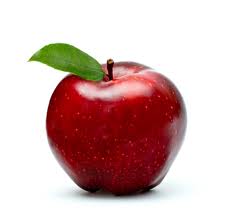Digital Music Debacle
posted in: Music News
By 2015, the digital music industry will swell by sixty percent to a total of $20 billion in global revenue. At least that’s what London based research firm Ovum claimed in a recently released report. Ovum’s theory is largely based around the anticipation of launches, from both Google and Apple, of cloud“based subscription services. But are the expected launches from these technology titans as certain and imminent as Ovum believes? Maybe so.

There have been rumors and even some evidence as of late regarding Google’s intentions to introduce its own music service. If you look at Google Mobile services [via Android] today, there’s a video service, there’s a music service”that is, there will be a music service, says Motorola CEO Sanjay Jha. “It’s been awhile since any talk of a Google music-streaming service was discussed, although it’s apparently been in development. Yesterday’s One Pass announcement lends further credibility to the idea that Google is clearly ready to challenge Apple’s hold over the content provider-publisher relationship, and iTunes is part of this.” In case you don’t know what he’s talking about, Google’s One Pass is an online payment system for content that will allow web publishers to sell subscriptions. We are allowing the publishers to transact directly with their customers, Google spokesperson Jeannie Hornung told the Times. Interesting side note: Apple’s new subscription service product takes a 30 percent commission while Google One Pass only takes 10 percent.

Apple has been striving to reduce download restrictions on music bought from the iTunes store. Instead of users being limited to one download when purchasing a song, they would have access to multiple downloads across several of their devices; this would get rid the nuisance of syncing your devices. According to Social Times, Apple plans to accomplish this by building a cloud“based music storage service (centralized in North Carolina at their new $1 billion data center). Once they have this capability, Apple will be able to imitate the unlimited music streaming for a monthly subscription model that has made services like Rhapsody and Spotify popular.

If Apple and Google do indeed create music subscription services this year as speculated, it very well may cause the sixty percent surge in digital music revenue that Ovum announced. Mark Little, the author of Ovum’s report, did warn us about a potential danger as well: accepting the growth in revenue as strictly positive. Digital music will experience what might appear to be healthy growth over the next five years, but there is a danger that this could mask the fact that the industry is not maximizing revenue potential, Little said to New Media Age. There’s too much free music available, and not just the illegal kind. Free Internet radio such as Pandora or Grooveshark, and freemium on-demand music services such as Spotify, are offering music without maximizing advertising or premium subscription revenues for themselves or the industry.”
